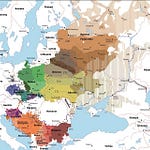This week on Unsupervised Learning Razib talks to Megan McArdle, author of The Up Side of Down: Why Failing Well Is the Key to Success and Washington Post columnist and op-ed board member. McArdle was raised in New York City and attended Riverdale Country School. She obtained an undergraduate degree in English from University of Pennsylvania and an MBA from the University of Chicago. A pioneering blogger based out of New York City and covering the site of the WTC in the wake of 9/11, McArdle went on to work at The Economist, The Atlantic and Newsweek.
In this episode, the discussion largely focuses on McArdle’s research about the cultural history of food and cooking in the US. But first they discuss the economic implications of Donald Trump’s election, and the domestic consequences shifting toward a tariff-heavy trade regime. McArdle lays out the case that a massive tariff would have the same impact as a tax, not to mention the broad disruptive economic effects on large companies’ supply chains.
Then they move on to the changes in American cuisine over the last few centuries, and the shifts driven by technology and innovation. McArdle points out that in the 19th century, gelatin dessert was a luxury and an exotic treat because it was labor intensive to prepare. But by the middle of the 20th century industrial-scale food processing made gelatin, in particular Jell-o, a cheap commodity, and it became associated with the lower classes. Similarly, before factory farming, chicken and eggs were more expensive than red meat, and thus viewed as high-end ingredient (whereas today, chicken is far cheaper than beef). Finally Razib and McArdle talk about how the plentitude of food available in the 21st century contributes to the obesity epidemic that has only ceased its relentless expansion with the advent of Ozempic.














